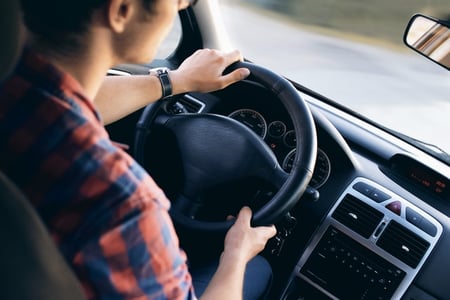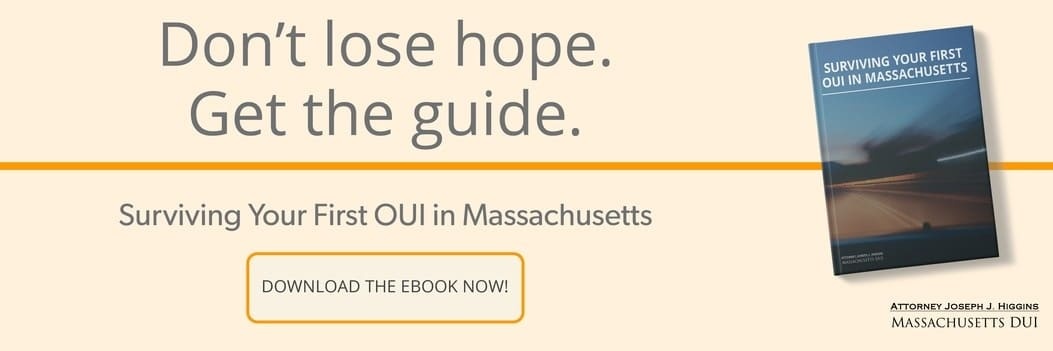Juveniles and adults under the legal drinking age face harsher licesne suspension penalties for DUI than those over the age of 21. The BAC limit for driver under the age of 21 is 0.02%.
People under the age of 18 are considered juveniles in Massachusetts. Juvenile DUI offenses are typically prosecuted in the juvenile court system. If the DUI offense, however, results in death or serious bodily injury, the juvenile can be prosecuted as though he or she were an adult, pursuant to the Youthful Offender statute.
Drinking under the age of 21 is illegal in Massachusetts. In fact, Massachusetts has a “zero tolerance” policy when it comes to under age drinking. Since the enactment of Melanie’s Law, people under the legal drinking age face harsher license suspension penalties for DUI than those over the age of 21. Individuals under the legal drinking age can have a BAC as low as 0.02% and lose their license for a length period of time.
If your child is facing a juvenile DUI, it’s important that you consult with a knowledgeable Massachusetts DUI attorney. An attorney will evaluate your case and take you step by step through the legal process. They’ll represent your child in court, defend your child’s rights, and attempt to secure a favorable outcome for your child at trial.
Licensing Penalties for Juvenile DUI and DUI Under 21
Per Melanie’s Law, juveniles and adults under the age of 21 face serious license suspension penalties for refusing a breathalyzer test. If your child refused the breathalyzer test, their license suspension for the refusal and any suspension handed down by the court will run consecutive to each other.
It is important to note that if your child is between the ages of 18 and 21, they will be tried as an adult. They are still, however, subject to Mass. Gen. Laws ch. 90 § 24P, also known as the Junior Operator Law (JOL), because they are under the legal drinking age.
If your child is under the age of 18 and refuses a breath test, their license will be suspended for:
- 1st Offense DUI: 3-year Refusal Suspension + 1-year JOL Suspension
- 2nd Offense DUI: 3-year Refusal Suspension + 1-year JOL Suspension
- 3rd Offense DUI: 5-year Refusal Suspension + 1-year JOL Suspension
- 4th Offense DUI: Lifetime Refusal Suspension + 1-year JOL Suspension
If your child is between the ages of 18 and 21 and refuses a breath test, their license will be suspended for:
- 1st Offense DUI: 3-year Refusal Suspension + 180-day JOL Suspension
- 2nd Offense DUI: 3-year Refusal Suspension + 180-day JOL Suspension
- 3rd Offense DUI: 5-year Refusal Suspension + 180-day JOL Suspension
- 4th Offense DUI: Lifetime Refusal Suspension + 180-day JOL Suspension
1st and 2nd Offense OUIs are considered misdemeanors under Massachusetts law unless they involve death or serious bodily injury. 3rd and 4th Offense OUIs are always felony offenses. Your child may also face fines and other criminal penalties handed down by the court.
Other Penalties for Juvenile DUI and DUI Under 21
While there are harsher licensing consequences for persons under the age of 21, the maximum penalties for DUI are the same as those for persons of legal drinking age:
- 1st Offense DUI: Up to 2 ½ years in a house of correction and a fine between $500 to $5,000.
- 2nd Offense DUI: 30 days to 2 ½ years in a house of correction and a fine between $600 and $10,000.
- 3rd Offense DUI: 150 days to 2 ½ years in a house of correction and a fine between $1,000 and $15,000; Up to 5 years in state prison if indicted and prosecuted as a Youthful Offender.
- 4th Offense DUI: 2 to 2 ½ years in a house of correction and a fine between $1,500 and $25,000. Up to 5 years in state prison if indicted and prosecuted as a Youthful Offender.
However, most 1st and 2nd offense DUIs result in the Alternative Disposition, which means your child won’t serve jail time. Instead, they’ll be placed on probation for up to two years:
- 1st Offense DUI Alternative Disposition: Up to 2 years of probation. Requirement to complete the First Offender alcohol driver education program, otherwise known as the 24D Program. If your child took the Breathalyzer and generated a result of .20 or higher, they will have to attend the 14-Day Inpatient program, or otherwise known as the Second Offender program.
- 2nd Offense DUI Alternative Disposition: Up to 2 years of probation. Requirement to attend a 14-day inpatient residential alcohol treatment program and participate in outpatient aftercare. The court must make written findings that treatment is appropriate for your child in order to make this option available.
Juvenile DUI Defense
A DUI or OUI conviction and the loss of your child’s license can impact your child’s life. It may make it more difficult for them to get to work, get to school, visit family, and possibly get a job. But it doesn’t mean their future is over.
People from all walks of life are charged with DUI every day. Many of them get through the process and go on to lead normal, successful lives. Your child’s DUI case is unique. An experienced Massachusetts DUI attorney can review their case, help you formulate a plan of action, and defend your child’s rights in court.
The burden of proof rests with the prosecution, which means your child is presumed innocent unless they can prove your child’s guilt beyond a reasonable doubt. An attorney will argue your child’s case at trial so your child could possibly receive a more favorable outcome, such as a verdict of “Not Guilty” or a dismissal of the case.



